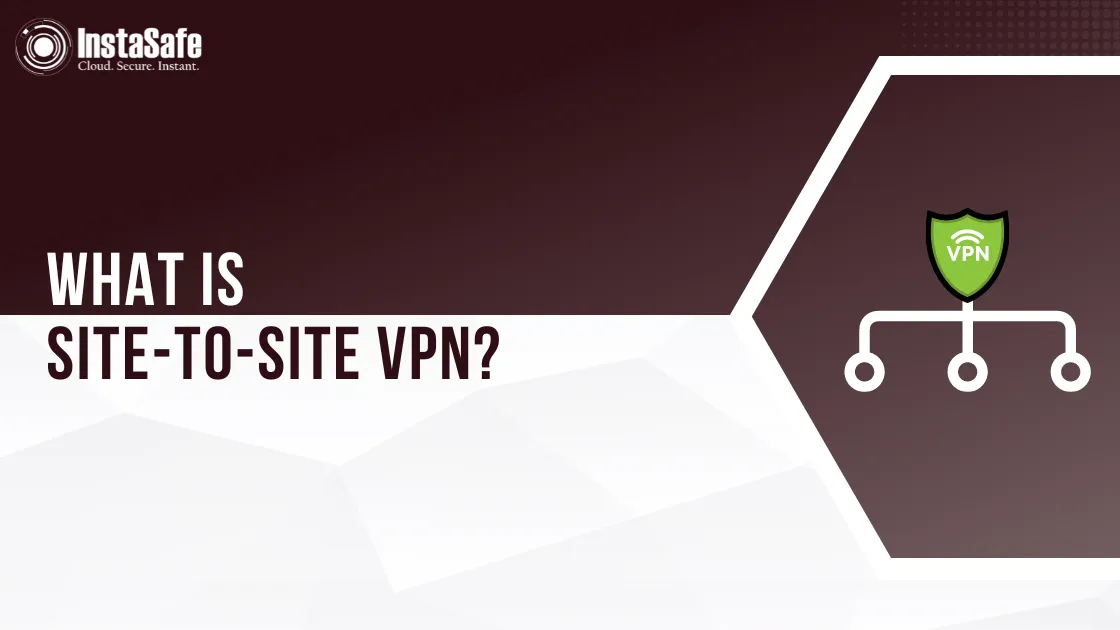What is Site-to-Site VPN?

Currently, we live in a world of cloud processing and remote workers, and secure connectivity in geographically segregated environments becomes a necessity to effectively operate and maintain a high standard of security. One technology that facilitates this type of connectivity is Site-to-Site VPN. In this blog post, we will discuss Site-to-Site VPN, its benefits, and how it works.
What is Site-to-Site VPN?
Site-to-Site Virtual Private Networks (VPNs) link two or more networks safely over the internet and are also referred to as router-to-router VPNs. Remote workers can access resources as if they were on the same local network because it enables companies to expand their private networks across numerous locations.
Organizations can safely link their branch offices, data centers, and cloud networks using site-to-site VPN, resulting in a seamless network environment. Encryption and authentication are provided by site-to-site VPN to safeguard data while it is in transit and guarantee that only approved users can access the network.
Benefits of a Site-to-Site VPN
Secure Connectivity: Site-to-Site VPN offers a secure, encrypted tunnel between networks, preventing spying and data tampering while data is in motion.
Cost-effective: Site-to-Site VPN enables companies to use inexpensive internet connections for network connectivity instead of pricy leased lines, which saves money.
Scalability: Site-to-Site VPN is the best option for companies that need to extend their network infrastructure because it makes it simple for businesses to link multiple locations.
Flexibility: Site-to-Site VPN allows companies to customize their networks to suit their unique requirements by supporting a number of network configurations, including hub-and-spoke, mesh, and hybrid.
How Site-to-Site VPN works
VPN gateways and VPN tunnels are the two primary elements used in site-to-site VPN to establish a secure connection between networks.
VPN Gateway: Hardware or software that creates the VPN link is known as a VPN gateway. It serves as a bridge between the two networks and is typically installed at each location that needs to be linked. Data encryption and decryption, user and device authentication, and VPN tunnel establishment are all handled by VPN servers.
VPN tunnels: A VPN tunnel is a private, encrypted link made over the internet between two VPN gateways. It offers a fictitious point-to-point link between the two networks, enabling safe data transfer.
The VPN portal at the user's site receives requests from users who need to access resources on other sites. The request is sent over the internet, encrypted, by the VPN gateway to the target site's VPN gateway. The request is decrypted and sent to the right resource by the target VPN gateway.
Types of Site-to-Site VPN
IPsec VPN: The protocol suite known as IPsec (Internet Protocol Security) offers protection for IP-based communication. The most popular Site-to-Site VPN technology is IPsec VPN because it offers reliable encryption and authentication.
SSL VPN: To establish a secure link between networks, SSL (Secure Sockets Layer) VPN employs SSL/TLS (Transport Layer Security) encryption. Site-to-Site VPNs can also use SSL VPN, which is frequently used for distant access VPNs.MPLS VPN: A secure and dependable link between networks is provided by MPLS VPN, also known as MPLS (Multiprotocol Label Switching) VPN. The use of MPLS VPN is widespread among big businesses and service suppliers.
Key Products
MFA | I&AM | ZTNA | Zero Trust Application Access | Secure Enterprise Browser
Key Features
Single Sign On | Endpoint Security | Device Binding | Domain Joining | Always On VPN | Contextual Based Access | Clientless Remote Access | Device Posture Check
Key Solutions
VPN Alternatives | DevOps Security | Cloud Application Security | Secure Remote Access | VoIP Security
